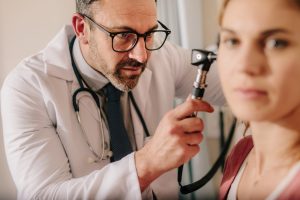
Poor hearing is associated with loneliness, low self-esteem, and an increased risk for depression and dementia.
Hearing loss, however, is not a guarantee. If you have yet to be diagnosed, there are actions you can take to protect your ears and hearing ability to improve your chances of staying engaged in the future.
Take a walk: Exercise is one of the most beneficial things for overall health and it may help protect hearing as well. Some experts believe that increased blood flow to the ear can help keep cilia, the tiny hairs in your inner ear that transmit vibrations interpreted as sound, healthy.
When cilia die or become damaged, they do not repair and hearing suffers permanently.
If walking isn’t your thing, find another activity that gets the blood flowing. Aim for at least 30 minutes per day, at least 5 days per week.
Turn down the volume: Turning down the volume is another controllable factor that can help preserve hearing. The National Institute of Deafness and Other Communication Disorders (NIDCD) estimates that 26 million Americans have hearing loss that may have caused by noise exposure.
You can prevent noise exposure by wearing protective equipment when using a leaf blower or lawnmower, keeping windows closed if you live on a busy street or near a highway, using noise-canceling headphones, and keeping volumes on the stereo and television at no more than 60% of max volume for no more than an hour per day.
Also, avoid earbuds when possible. Inserting devices directly into the ear canal is not a great idea. Additionally, these devices often provide poor sound quality leading to higher listening volumes. Getting some decent quality over-ear headphones is a good investment.
Use aids if you have them: If you’ve been diagnosed with some hearing damage and have hearing aids, be sure to use them even if you don’t think you need them. They can reduce the risk of further hearing loss.
Those are a few things you can do to protect your hearing now that may have future benefits. Take care of your ears and they will take care of you!